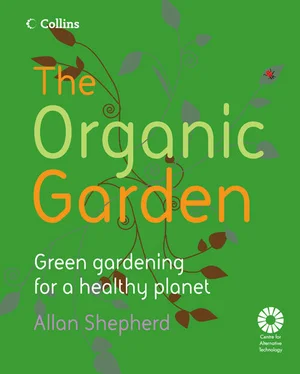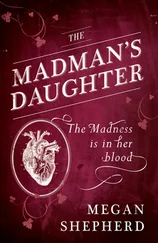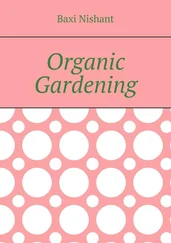Understanding ethical symbols
 Soil Association.The Soil Association symbol covers things such as food, compost, liquid fertilisers, seeds and plants. A full list of organic certifying bodies is available from www.defra.gov.uk/farm/organic/standards/index.htm. The Soil Association is the most widely recognised symbol, and comes from the grass roots organic movement: www.soilassociation.org.
Soil Association.The Soil Association symbol covers things such as food, compost, liquid fertilisers, seeds and plants. A full list of organic certifying bodies is available from www.defra.gov.uk/farm/organic/standards/index.htm. The Soil Association is the most widely recognised symbol, and comes from the grass roots organic movement: www.soilassociation.org.
 Organic Farmers and Growers.One of the other main organic symbols. Check www.organicfarmers.org.uk for full standards.
Organic Farmers and Growers.One of the other main organic symbols. Check www.organicfarmers.org.uk for full standards.
Vegan Organic Network.This symbol guarantees that your food comes from a supplier that does not use animal products to grow food. Support Vegan Organic Network to combat climate change and for help in growing your own food the green, clean and cruelty-free way: www.veganorganic.net.
 Vegan Society.Guarantees products are free from animal products and have not been made using any processes that might have harmed animals: www.vegansociety.com.
Vegan Society.Guarantees products are free from animal products and have not been made using any processes that might have harmed animals: www.vegansociety.com.
 Vegetarian Society Approved.Signifies products have met the following criteria: free from animal flesh, contains only free-range eggs, GMO free, cruelty free and no cross contamination with non-vegetarian ingredients. www.vegsoc.org.
Vegetarian Society Approved.Signifies products have met the following criteria: free from animal flesh, contains only free-range eggs, GMO free, cruelty free and no cross contamination with non-vegetarian ingredients. www.vegsoc.org.
 Leaf Marque.Affordable food produced by farmers who are committed to improving the environment for the benefit of wildlife and the countryside: www.leafmarque.com.
Leaf Marque.Affordable food produced by farmers who are committed to improving the environment for the benefit of wildlife and the countryside: www.leafmarque.com.
Marine Stewardship Council (MSC).Internationally recognised standard for sustainable and well-managed fisheries: www.msc.org.
Forest Stewardship Council (FSC). Indicates products which contain wood that comes from a forest that is well managed according to strict environmental, social and economic standards: www.fsc-uk.org. See also page 48.
 European Energy Label.Manufacturers of certain household electricity products must label these products with information on energy consumption and performance: www.defra.gov.uk/environment/consumerprod/mtp.
European Energy Label.Manufacturers of certain household electricity products must label these products with information on energy consumption and performance: www.defra.gov.uk/environment/consumerprod/mtp.
European Ecolabel.Europe-wide award for non-food products that minimise impact on the environment: www.defra.gov.uk/environment/consumerprod/ecolabel.
Rainforest Alliance.Goods from farms and forests that are managed in an environmentally and socially responsible way: www.rainforest-alliance.org.
Energy Saving Recommended.This logo is your guarantee that the product will save energy, cost less to run and help the environment. Managed by the Energy Saving Trust: www.est.org.uk/recommended.
UK Fuel Economy Label.Shows how much carbon dioxide a car emits: www.lowcvp.org.uk.
 VOC Labels.Indicate the relative content of harmful VOCs (Volatile Organic Compounds) in paints and associated products. VOCs cause air pollution and may be harmful to human health: www.coatings.org.uk.
VOC Labels.Indicate the relative content of harmful VOCs (Volatile Organic Compounds) in paints and associated products. VOCs cause air pollution and may be harmful to human health: www.coatings.org.uk.
Mobius Loop.Indicates that part of a product can be recycled where facilities are available. The inclusion of a figure shows the percentage of recycled material that has been used to make a product. www.biffa.co.uk/getrecycling/symbols.php.
FAIRTRADE Mark.Products that meet international Fairtrade standards. These include long-term contracts and a price that covers the cost of sustainable production and living. Some money also goes to community groups: www.fairtrade.org.uk.
Reading between the symbols
Organised standards are almost always the best way to ensure that products are ethically up to scratch. However, there are some exceptions. Many local suppliers in my area have not been through the certification process, but because I know them and what materials they use and how they grow and harvest their materials and plants, I know I am getting an environmentally sound product. Mail-order catalogues and websites do not always brand products with a logo but use words such as 100 per cent recycled or made with organic materials. If you’re not sure, ask the supplier which standards they meet and decide on face value whether you want to buy the product – with or without the logo.
Wherever possible in this book I’ve tried to make suggestions for new products to save you the trouble of doing all the research, but products and companies change all the time so please use the information I have provided as a guide rather than an absolute recommendation. Also I am one writer working alone. If you have any doubts concerning a product or a company then you should refer to those organisations whose job it is to monitor standards and provide information (see above).
When you’re looking for a supplier, use these questions to know if they really are what they say they are. Ask them where do their products come from? What is their policy on recycling? What are they doing to reduce CO2 emissions? There are plenty of great ethical companies now who share your values. It takes time to find good suppliers but often the rewards are much greater than the effort. I get an enormous buzz from discovering a new company selling a new range of well-thought-out products.
Where to go for independent information and advice
CAT provides one of the best information services in the country. It has a huge database of contacts working in the environmental sector. CAT does not set standards or review company performances but will act on complaints made about companies, which can result in their removal from the database. Phone their information line on + 44 (0) 1654 705 989.
Ethical Consumer magazine is the single most important source of information about products, services and companies available to the average consumer. Each month it analyses a different set of products for their environmental and ethical performance. A must read.
Gardening Which? magazine does not necessarily focus on environmental and ethical considerations so much as quality and performance of products, but sustainability is also about how well a product performs and lasts. It does have special environmental features and as a general read for the average gardener it is extremely good.
The World Wide Fund for Nature (WWF) has extremely strict buying criteria for all of its products. Each supplier has to fill out a ream of forms before the organisation will stock its goods.
Greenpeace and Friends of the Earth both produce wide-ranging reports on ethical and environmental standards and whistle-blow the illegal activities of polluting companies worldwide.
Other magazines: Organic Gardening , Permaculture , The Organic Way – the magazine of Garden Organic (HDRA) – The Ecologist , New Consumer , Free Range, Growing Green International from VON and Clean Slate – CAT’s membership mag – are all good sources of information.
Читать дальше

 Soil Association.The Soil Association symbol covers things such as food, compost, liquid fertilisers, seeds and plants. A full list of organic certifying bodies is available from www.defra.gov.uk/farm/organic/standards/index.htm. The Soil Association is the most widely recognised symbol, and comes from the grass roots organic movement: www.soilassociation.org.
Soil Association.The Soil Association symbol covers things such as food, compost, liquid fertilisers, seeds and plants. A full list of organic certifying bodies is available from www.defra.gov.uk/farm/organic/standards/index.htm. The Soil Association is the most widely recognised symbol, and comes from the grass roots organic movement: www.soilassociation.org. Organic Farmers and Growers.One of the other main organic symbols. Check www.organicfarmers.org.uk for full standards.
Organic Farmers and Growers.One of the other main organic symbols. Check www.organicfarmers.org.uk for full standards. Vegan Society.Guarantees products are free from animal products and have not been made using any processes that might have harmed animals: www.vegansociety.com.
Vegan Society.Guarantees products are free from animal products and have not been made using any processes that might have harmed animals: www.vegansociety.com. Vegetarian Society Approved.Signifies products have met the following criteria: free from animal flesh, contains only free-range eggs, GMO free, cruelty free and no cross contamination with non-vegetarian ingredients. www.vegsoc.org.
Vegetarian Society Approved.Signifies products have met the following criteria: free from animal flesh, contains only free-range eggs, GMO free, cruelty free and no cross contamination with non-vegetarian ingredients. www.vegsoc.org. Leaf Marque.Affordable food produced by farmers who are committed to improving the environment for the benefit of wildlife and the countryside: www.leafmarque.com.
Leaf Marque.Affordable food produced by farmers who are committed to improving the environment for the benefit of wildlife and the countryside: www.leafmarque.com. European Energy Label.Manufacturers of certain household electricity products must label these products with information on energy consumption and performance: www.defra.gov.uk/environment/consumerprod/mtp.
European Energy Label.Manufacturers of certain household electricity products must label these products with information on energy consumption and performance: www.defra.gov.uk/environment/consumerprod/mtp. VOC Labels.Indicate the relative content of harmful VOCs (Volatile Organic Compounds) in paints and associated products. VOCs cause air pollution and may be harmful to human health: www.coatings.org.uk.
VOC Labels.Indicate the relative content of harmful VOCs (Volatile Organic Compounds) in paints and associated products. VOCs cause air pollution and may be harmful to human health: www.coatings.org.uk.










